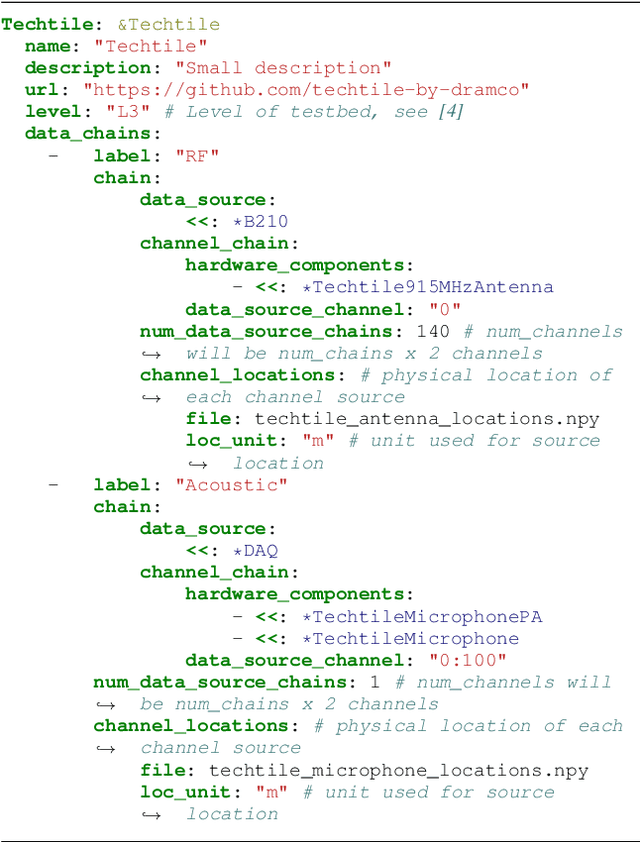William Tärneberg
An Open Dataset Storage Standard for 6G Testbeds
Nov 05, 2023



Abstract:The emergence of sixth-generation (6G) networks has spurred the development of novel testbeds, including sub-THz networks, cell-free systems, and 6G simulators. To maximize the benefits of these systems, it is crucial to make the generated data publicly available and easily reusable by others. Although data sharing has become a common practice, a lack of standardization hinders data accessibility and interoperability. In this study, we propose the Dataset Storage Standard (DSS) to address these challenges by facilitating data exchange and enabling convenient processing script creation in a testbed-agnostic manner. DSS supports both experimental and simulated data, allowing researchers to employ the same processing scripts and tools across different datasets. Unlike existing standardization efforts such as SigMF and NI RF Data Recording API, DSS provides a broader scope by accommodating a common definition file for testbeds and is not limited to RF data storage. The dataset format utilizes a hierarchical structure, with a tensor representation for specific experiment scenarios. In summary, DSS offers a comprehensive and flexible framework for enhancing the FAIR principles (Findability, Accessibility, Interoperability, and Reusability) in 6G testbeds, promoting open and efficient data sharing in the research community.
Dynamic Federations for 6G Cell-Free Networking: Concepts and Terminology
Apr 05, 2022Abstract:Cell-Free networking is one of the prime candidates for 6G networks. Despite being capable of providing the 6G needs, practical limitations and considerations are often neglected in current research. In this work, we introduce the concept of federations to dynamically scale and select the best set of resources, e.g., antennas, computing and data resources, to serve a given application. Next to communication, 6G systems are expected to provide also wireless powering, positioning and sensing, further increasing the complexity of such systems. Therefore, each federation is self-managing and is distributed over the area in a cell-free manner. Next to the dynamic federations, new accompanying terminology is proposed to design cell-free systems taking into account practical limitations such as time synchronization and distributed processing. We conclude with an illustration with four federations, serving distinct applications, and introduce two new testbeds to study these architectures and concepts.
 Add to Chrome
Add to Chrome Add to Firefox
Add to Firefox Add to Edge
Add to Edge